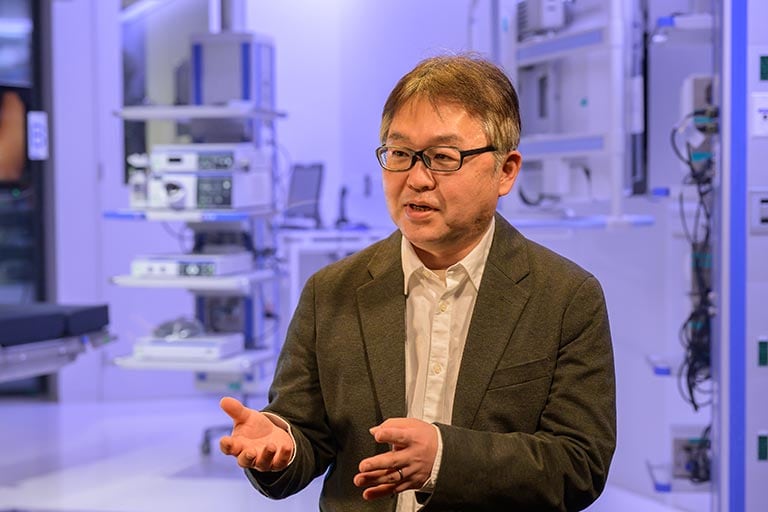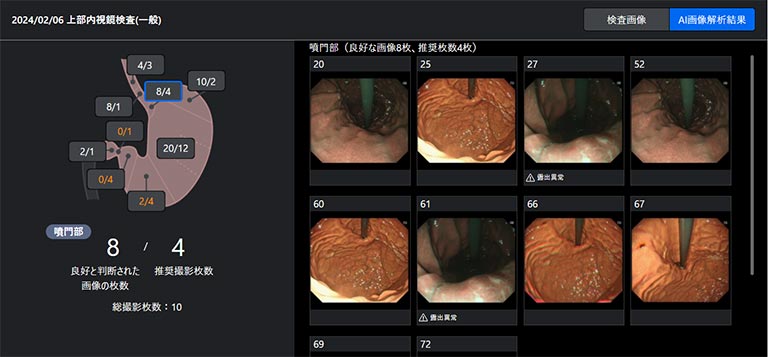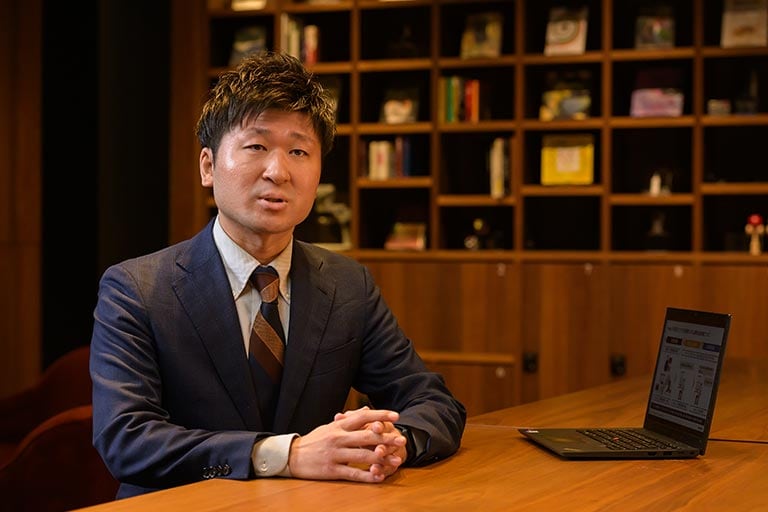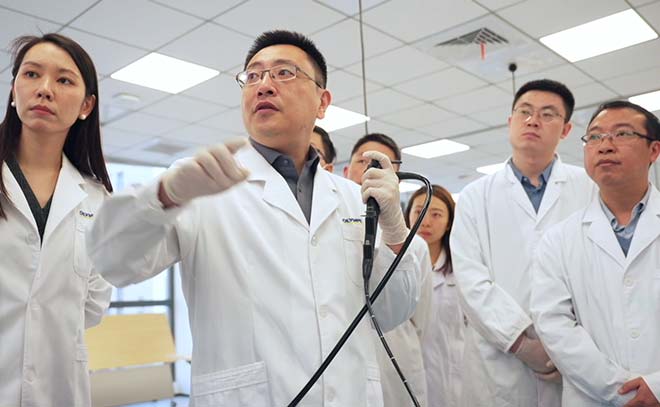Many municipalities offer cancer screening services to their residents to aid in cancer prevention, early detection, and treatment. For detecting gastrointestinal cancers such as stomach cancer, endoscopic screenings are utilized. According to the “Quality Assurance Manual of Endoscopic Screening for Gastric Cancer in Japanese Communities” published by the Japanese Society of Gastrointestinal Cancer Screening, there's a required step of image interpretation. In this step, highly specialized doctors, separate to those who performed the screening, review the screening images for a second opinion. Conducting gastric endoscopic screenings on a large scale makes communication and the exchange of information necessary amongst various stakeholders. This includes the healthcare professionals who perform the screenings, those who review the images for a second opinion, and local government officials who manage the screening program.
In the past, healthcare professionals reviewing the images had to visit a central site for image interpretation set up by the local government to collect data, which was quite a burden. Furthermore, the exchange of screening data among the parties involved was done by the use of USB flash drives or CD-ROMs, leading to significant time and costs incurred in its preparation and delivery. The development of a cloud-based screening system was aimed to address these challenges.
Masakazu Kawamura, who led the development team, states, "By creating a centralized information platform in the cloud, we have significantly reduced the time and effort needed to exchange screening data." Kawamura explains further, "Now, healthcare professionals can review images more efficiently from their own hospital or home without having to travel to the site for image interpretation, thanks to secure access to the data."









